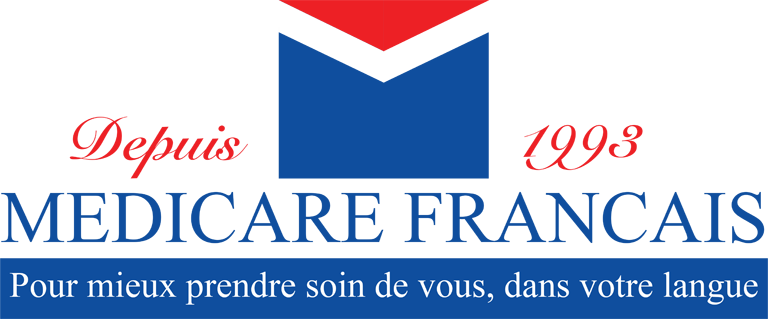Mental health: which specialist should I choose? (Psychology, Therapy, Coaching, Sophrology)
Florence Cherel, Psychologist, Morgane Le Cleuyou, therapist, Audrey Zeitoun, certified life coach and Sophie McGrath, Sophrologist explain their specialty in detail to understand when to consult them.
The Psychology, Therapy, Coaching and Sophrology specialties all have the objective of helping people reach their full potential but have different approaches to achieve it.
In which case, consult a psychologist? (written by Ms. Florence Cherel, psychologist)
To undertake psychotherapy is to seek to reduce mental suffering and allow a more fulfilling life.
A patient may turn to therapy for difficulties related to present problems or to resolve blockages related to older difficulties.
The therapist will help the patient in a sympathetic listening to identify and interpret the difficulties suffered by the patient and lead him to find ways to alleviate his suffering.
The reasons for initiating therapy can be multiple and not exhaustive: anxiety, depression, stress, burn out, family problems, grief, addiction, phobia, eating disorders…
Different approaches can be proposed to patients:
-
- A psychodynamic approach (inspired by psychoanalysis)
- An integrative approach (combining several therapeutic orientations)
- A cognitive and behavioural approach (especially to treat anxiety and phobias)
- Couples therapy
- Family therapy
- EMDR (to treat trauma)…
It is important to note that what is important is the therapeutic alliance between the patient and the therapist, the code of ethics in which the practitioner adheres, with respect for the patient and the neutrality of judgement.
In which case do therapy? (written by Ms.Morgane Lecleuyou, therapist specialised in anxiety)
The therapies I propose are effective in managing anxiety, stress, disturbing emotions, memories that still affect you or phobias.
They are based on different tools that can be used independently of each other or in addition, depending on the need or preferences of the person I am accompanying:
-
- Hypnotherapy (cognitive and behavioural hypnosis)
- Emotional Freedom Technique (EFT)
- EMDR
The first two approaches are particularly well suited to managing anxiety and emotions, and aim to become aware of, identify and see the influence of our thoughts and emotions on our lives in order to re-evaluate them and welcome them with more distance.
I particularly appreciate them because besides their usefulness in our accompaniments, I can teach them to my clients who, thus equipped with these tools of management of their emotions, become autonomous in the daily management of their difficulties.
The EMDR is a particularly effective approach in managing phobias but also trauma (when a follow-up with a psychologist is conducted in parallel). It is a technique that helps to alleviate the emotional burden of a past event or negative beliefs by separating the difficult emotions associated with it through bilateral bodily stimulation.
In which cases consult a coach? (written by Audrey Zeitoun, certified life coach)
“Coaching is a partnership between a coach and his client that provides the person with a framework of thought and inspiring creativity that will help him or her make the most of his or her personal and professional potential.” – ICF (the International Coaching Federation)
Coaching addresses personal or professional issues. You want to change something in your life but you don’t think you can do it alone. The coach will help you find the necessary solutions and resources to then make you autonomous on these challenges. It helps you to have a clearer vision of your need, of your challenge, of what prevents you from moving forward and then you work on it with your coach to achieve your professional or personal goals.
Life coaches can help people develop confidence, improve communication skills, find passion, advance their careers, improve relationships with themselves and others, manage their time and achieve their goals.
The idea is to make positive changes in their lives. Life coaches use coaching techniques such as active listening, goal clarification, action planning and follow-up to help people reach their goals.
In which case do sophrology? (written by Sophie McGrath, sophrologist)
Designed in the 1960s by a neuropsychiatrist, sophrology is a psycho-body method to reduce stress and develop personal resources, working on both physical and psychic symptoms (body/mind).
During the sessions, after a time of dialogue, it is a question of combining exercises of breathing, relaxation, visualisation and very simple movements. The goal is to build resilience, find balance between body and mind and learn to develop a positive outlook when we need it in our lives.
Regardless of the area concerned, sophrology makes it possible to find a soothing fit for everyone and will help to manage more serenely, confidently and positively, very diverse situations and symptoms.
It is probably in the field of stress management and anxiety that sophrology is the best known today. The goal of sophrology is to better manage common symptoms of stress and find solutions to reduce anxiety or prepare for specific events.
But beyond stress, because they make it possible to become aware of the mechanisms at work in the body and in the mind, the sessions of sophrology lead for example to: better manage fatigue, find a recuperative sleep, learn to live better with chronic pain or to support stabilisation during weight loss.
I am also trained in pre- and post-natal sophrology. Sophrology provides support for young mothers during this special period when physical and psychological manifestations can be a real challenge.
To summarise
Its four specialties have the same purpose but work in a different way; to optimise your path to a healthy mind, we recommend using a combination of its specialties as they complement each other. Each person is different and will find over time what suits them.






